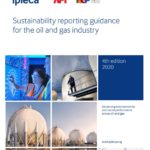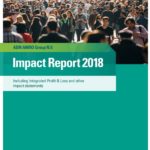Nike v. Kasky could undermine the ability to require accurate reporting
Article by Adam M. Kanzer and Cynthia A. Williams.
Imagine if corporations were permitted to "plead the First Amendment," making it virtually impossible to use litigation to test the truth of company statements about their social and environmental records. This could be the impact of the position taken by Nike in a case to be decided soon by the Supreme Court, Nike v. Kasky. Nike argues that in defending itself against charges of using sweatshop labor, its statements were "political speech," subject to full First Amendment protections. But if this view prevails, it could invalidate many consumer protection laws and securities regulations. And it could permanently undermine the reliability of corporate reporting — both financial and social.
The case concerns statements made by Nike in the late 1990s: that it paid "on average, double the minimum wage" in overseas countries, for example, and that its workers "are protected from physical and sexual abuse." Marc Kasky sued Nike in 1998 for making false statements, using California consumer protection laws. The case hinges on whether Nikes statements are commercial or political speech, because the former is subject to greater regulation. Nike maintains its statements were political because they touched on matters of public concern. The California Supreme Court disagreed, reasoning that when a commercial entity states facts about its products or operations to influence consumer decisions, that is commercial speech.
Even Nike concedes that social issues have financial impact — since labor controversies affected Nikes stock price and financial performance in the late 1990s. Yet Nike defines any commercial speech that also touches upon matters of public concern as "political speech," which makes it more difficult to regulate. That definition is alarmingly broad, affecting nearly every aspect of a corporation’s business. After all, the financial performance of a publicly traded corporation can be considered a matter of "public concern." Stock options expensing, auditor independence, and executive compensation are matters of public concern. Should corporate disclosures on these issues be immunized from litigation or SEC enforcement?
In an amicus brief to the Supreme Court in support of Kasky, we argue that social disclosure should be subject to the same legal requirements as financial disclosure. Securities regulation in the U.S. is premised upon compelled disclosure of specified information. The Supreme Court has struck down compelled disclosure of political speech, however, arguing that the right to speak also implies the right to remain silent. It is vitally important that government regulators retain the authority to compel accurate and timely disclosure of all material corporate information — particularly information that is also a matter of broad public concern. Moreover, misleading social and environmental statements about a companys operations should be subject to anti-fraud liability, just as misleading financial reports are.
Some believe that the California ruling will have a "chilling effect" on corporate social responsibility reporting. If companies are not required to produce this information, why take the risk of a "Kasky-like" claim? We believe the larger lesson of this case is the fragility of the voluntary social reporting scheme we now rely on. Corporate communications can be "chilled" only if they remain voluntary. This is the reason social investors, labor, and environmentalists have formed the Corporate Sunshine Working Group, to persuade the SEC to make comprehensive social and environmental reporting mandatory.
Granting full First Amendment protection to corporate speech may also threaten social investors ability to file shareholder resolutions on social or environmental matters — because the SEC might not have the authority to compel corporations to include such "political" speech in their proxy statements.
Nike argues that both sides of a debate should be permitted to speak freely, without fear of government intervention or liability. But while the government has no role to play in winnowing false from true political ideas, it plays a critical role in ensuring that commercial facts are accurate. There is a significant difference between saying "free trade is good for the developing world" and "we pay double the minimum wage." Nikes statements on factory conditions were not part of a debate about globalization. They were aimed at deflecting consumer boycotts and boosting its stock price. Nike concedes this in its own brief, stating that "virtually everything a company does is ultimately intended to improve its financial bottom line."
Thus virtually everything a company says is commercial speech, and must be accurate. If Nike succeeds in enlarging corporate political speech, it could permanently undermine the most effective tool we have for holding corporations accountable — timely, accurate information. This would be a huge step backwards at a time when investors need greater corporate transparency.
Adam M. Kanzer is general counsel and director of shareholder advocacy for Domini Social Investments. Cynthia A. Williams is associate professor of law at the University of Illinois College of Law, and the principal author of Dominis Supreme Court brief. The brief, also signed by KLD Research & Analytics and Harrington Investments, is available at www.domini.com. Information on the Corporate Sunshine Working Group is available at www.corporatesunshine.org.
This article appears in the Summer 2003 issue of Business Ethics magazine.



